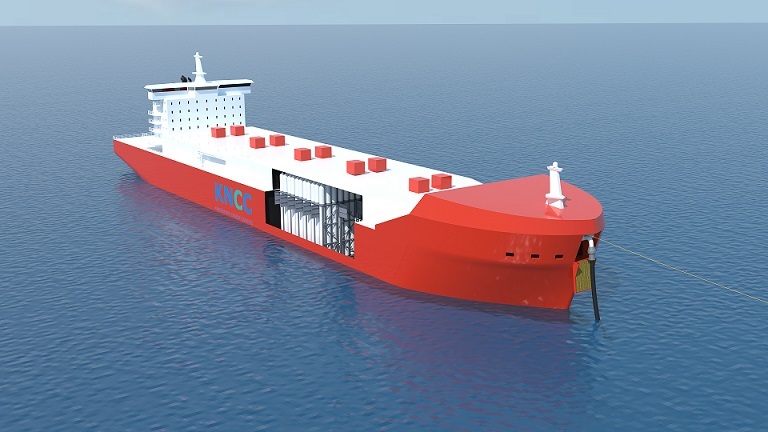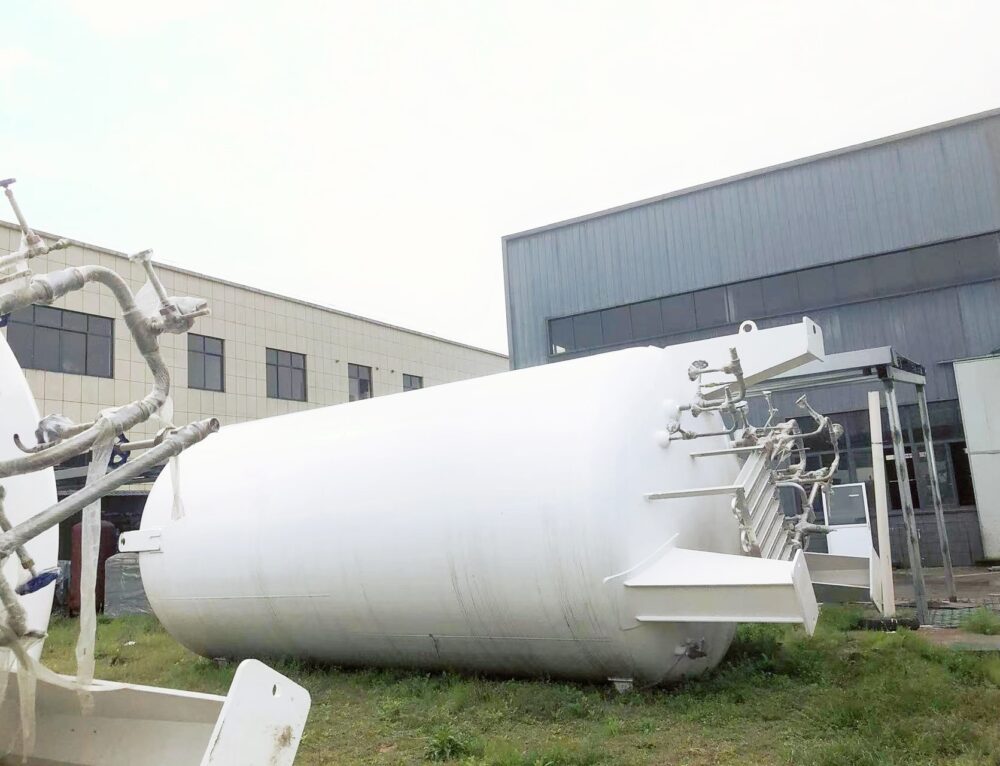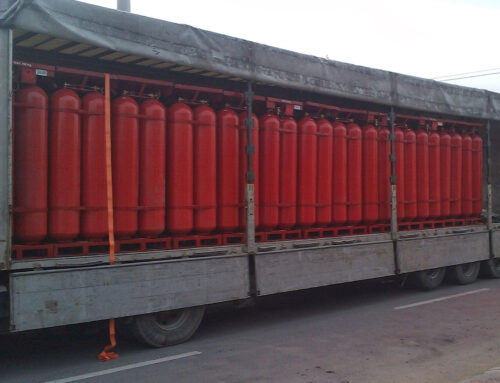The approval, which was issued on 5 April, is said to be the world’s first AiP for a cargo tank system that can marine transport and store LCO2 at ambient temperature.
The PCO2 concept is based on a cylinder type CO2 containment system applying principles used in compressed natural gas (CNG) transportation. The CO2 is stored in bundles of vertically stacked small-diameter pressure cylinders, rather than large cylindrical tanks.
As described, the concept of the PCO2 tank system is to transport LCO2 over ambient temperatures (0–10°C) and under high pressure (35–45 bar) which would enable the transport of LCO2 in larger vessels and reduce costs incurred throughout the carbon capture, utilisation and storage (CCUS) value chain.
Furthermore, transporting at ambient temperature and high pressure makes it possible to keep the pressure, temperature, and condition of LCO2 relatively uniform from the transport of LCO2 to injection into the seabed or underground.
It makes it easier to handle liquefied CO2 in the CCUS value chain, which also has the advantage of reducing costs throughout the CCUS value chain, the developers explain.
“KNCC is pleased to have reached an important milestone in the commercial and technical development of our company”, said Anders Lepsøe, CEO of KNCC. “The close cooperation with DNV, representing world-class expertise in the area of marine transportation of liquefied CO2 has been both constructive and valuable, and KNCC is now prepared to take the next step with the PCO2 technology into this emerging shipping segment. Further, our ability to form an integral part of the CCS value chain and by that contributing to reaching global climate goals is essential both to our owners and KNCC.”
KNCC is a newly formed joint venture company by NYK and Norway’s vessel operator Knutsen Group for the commercial development of an LCO2 marine transportation and storage business worldwide.






